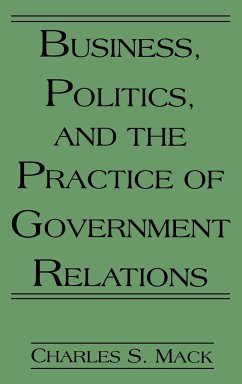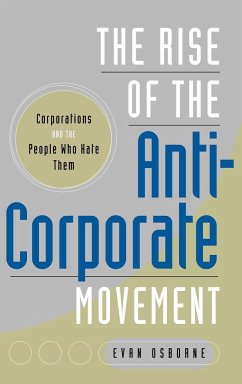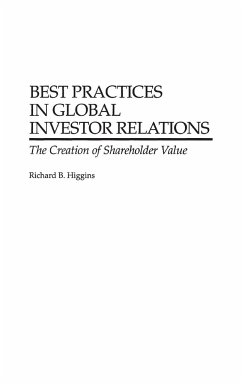
Corporate Community Relations
The Principle of the Neighbor of Choice
Versandkostenfrei!
Versandfertig in 1-2 Wochen
87,99 €
inkl. MwSt.

PAYBACK Punkte
44 °P sammeln!
As Burke shows, to be a neighbor of choice a company has to pursue three strategies: build sustainable and ongoing relationships with key community individuals, groups, and organizations; institute procedures that anticipate and respond to community expectations, concerns, needs, and issues; and focus the company's community programs on ways that promote and strengthen the commuity's quality of life and which also support the business goals of the company. The strategies developed by Burke will be of great use to community and public affairs managers and general managers of corporations as well as CEOs and other executive officers. Students in courses on corporate strategy and general management will find the book of value, as will students in courses on non-profit management.
Burke challenges the current thesis that companies should act responsibly toward communities and societies. Instead, he shows that changes in society mandate that companies must develop strategies and programs that foster a reputation of trust in local communities in order that they preserve their license to operate. Burke describes strategies and programs of action that enable companies to develop trust and thus maintain their license to operate. He also describes ways to use philanthropy and volunteer programs to achieve a competitive advantage. The public environment in which companies operate has changed significantly since the 1970s. Communities, in response to elected officials and community groups, are demanding that companies observe new norms of behavior. They expect companies to respect the environment, respond to the concerns of the community residents, and contribute to the support of community institutions. As Burke illustrates, a company's community reputation also affects the behavior of consumers and employees. Consumers prefer to buy products from companies that are involved in the community. Employees are attracted to companies that have a good community reputation. Just as successful companies need to be a supplier of choice, an employer of choice, and an investor of choice, they now have to become a neighbor of choice. They have to behave in ways that build a legacy of trust in order to be positioned positively in the community. As Burke shows, to be a neighbor of choice, a company has to pursue three strategies: build sustainable and ongoing relationships with key community individuals, groups, and organizations; institute procedures that anticipate and respond to community expectations, concerns, needs, and issues; and focus the company's community programs on ways that promote and strengthen the community's quality of life and which also support the business goals of the company. The strategies developed by Burke will be of great use to community and public affairs managers and general managers of corporations as well as CEOs and other executive officers. Students in courses on corporate strategy and general management will find the book of value, as will students in courses on non-profit management.












